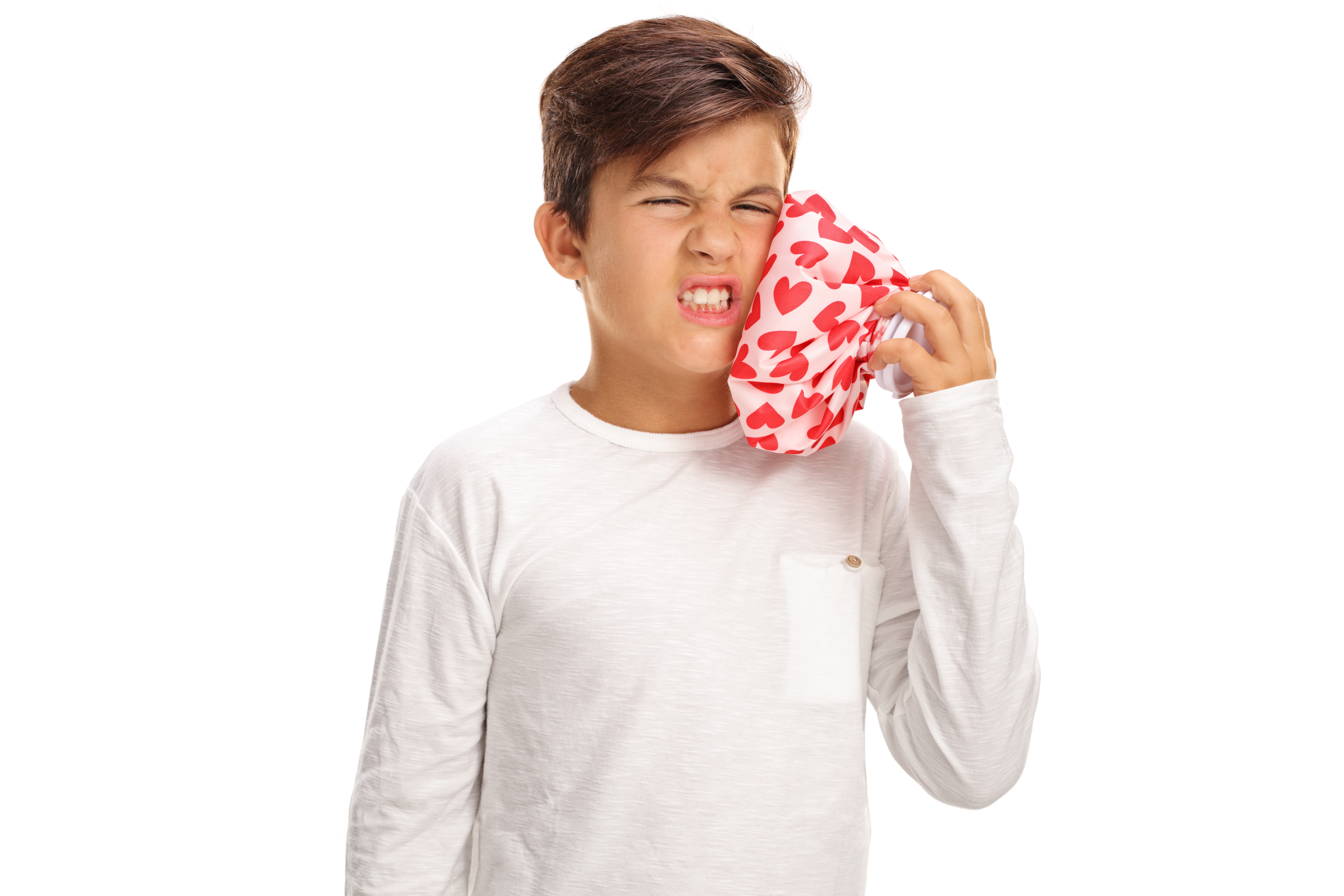IN THE EVENT OF AN EMERGENCY, CHILDREN’S DENTAL CENTER OF CENTRAL IOWA IS AVAILABLE 7 DAYS A WEEK. FOR AFTER HOURS CARE, PLEASE CALL 515-329-6767. WHAT SHOULD I DO IF MY CHILD FALLS AND KNOCKS OUT A PERMANENT TOOTH? Remain calm. Locate the tooth and pick it up by the chewing surface, being careful not to touch the root. If the tooth is not dirty or broken, you should attempt to reinsert it into your child’s mouth into the empty socket. If you are able to reinsert it, have your child hold the tooth in place by biting on a clean piece of cloth or gauze and go directly to your pediatric dentist. If you cannot reinsert the tooth (or if it is dirty or broken), put the tooth in a glass of milk and take it and your child immediately to your dentist’s office. WHAT SHOULD I DO IF MY CHILD KNOCKS OUT A BABY TOOTH? Contact your dentist immediately. Do not attempt to reinsert the tooth to avoid damage to the developing permanent tooth. Your dentist will be able to determine if any follow-up care is necessary. WHAT SHOULD I DO IF MY CHILD CHIPS OR BREAKS A TOOTH? Even if the damaged tooth is not a permanent one, it is important to go immediately to the dentist office. Once a tooth has become chipped or broken, bacteria can enter the tooth’s pulp or nerve and cause an infection. It is important for a dentist to evaluate the damage and seal the enamel to keep bacteria out and ward off infection. If you are able to locate the piece of broken tooth, put it in a glass of milk and bring it with you to your pediatric dentist. In some cases, the broken piece can be reattached in the office.
- Apply direct pressure on the bleeding area using a clean cloth.
- If there is swelling, use a cold compress to reduce the swelling. (Tip: A Popsicle often works well.)
- Give your child an appropriate dose of acetaminophen or ibuprofen.
HOW DO I TREAT A CUT/BITTEN TONGUE, LIP OR CHEEK? A cut or bitten tongue, lip or cheek can result in bleeding, swelling and discomfort.
- Apply direct pressure to the wound to stop the bleeding. If there is swelling, reduce it by applying a cold compress. (Tip: A popsicle works well.)
- Give your child acetaminophen or ibuprofen to alleviate pain and discomfort. Repeat these steps as needed.
HOW DO I TREAT A TOOTHACHE? Have your child rinse with warm salt water to soothe the ache. If you notice any swelling, apply a cold compress directly to the affected area. Give your child acetaminophen or ibuprofen for any pain or discomfort. Even if the pain subsides, visit us as soon as possible to rule out any problems. WHAT SHOULD I DO IF I SUSPECT A BROKEN JAW? If you know or suspect your child has sustained a broken jaw, use a cold compress to reduce swelling. Call our emergency number and/or head to the hospital immediately. In many cases a broken jaw is the result of a blow to the head. Severe blows to the head can be dangerous and even life-threatening. HOW CAN I PREVENT INJURY? You can help your child avoid dental emergencies. Child-proof your house to avoid falls. Don’t let your child chew on ice, popcorn kernels, or other hard foods. Always use car seats for young children and require seatbelts for older children. And if your child plays contact sports, have him or her wear a mouthguard. Ask us about creating a custom-fitted mouthguard for your child. Finally, prevent toothaches with regular brushing, flossing, and visits to our office, please call 515-800-4071 to schedule an appointment today.


